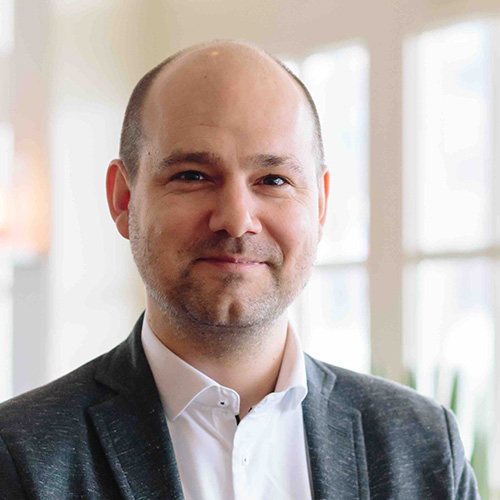Why negotiation should be at the heart of every nonprofit
People who join nonprofits generally love the word cooperation. One cannot change the world alone: joining forces with others —colleagues, partners, donors— is the only way to do so. In the global fight around poverty, climate change, illiteracy and access to health care, Development Cooperation is the logical umbrella term. Negotiation, on the other hand, does not feature very prominently in the minds of non-profit professionals; neither does it often make the list of required skills in NGO job listings. More often than not, negotiation is perceived as a win or lose exercise in which two or more parties are dividing something of fixed value.
This short blog series covers the question why negotiation is essential to fundraising, communications and partnerships. Within this “negotiation triangle”, enhanced skill set can make the difference between success and failure.
How to negotiate your funding
Perhaps the single largest missed opportunity for non-profit professionals is to default to fundraising as a well-framed begging exercise. In raising money from individuals, foundations and large institutions, it took me years to realize that approaching donors with a story that appealed to their charitable instincts alone, and from a perspective of zero power on my own end, is very ineffective. When I started out as a director of a small nonprofit, I believed my fundraising duty essentially came down to a high-quality pitch on the substance. If I would present a better plan than my competition, the funding would start to flow. Or so I assumed…
An approach to fundraising inspired by negotiation theory offers better odds I found out along the way. Distinguishing between positions and interests is one of the fundamentals of negotiation theory. So-called positional negotiation has been proven to create less value for both parties and to lead to breakdowns (no deals) more often. When my pitch to a donor is “you should fund this project because it is the best around”, that is a position a donor can respond to with either “yes” or “no”. Often it will be “no” because competition is fierce. Similarly, if my only focus is on donor’s official positioning on funding (e.g. “highest impact, value for money and proven concept”) I am likely to adjust my position to what is required. Even if funded, those adjustments are often not in my interest as they reduce the impact my organization is seeking in the field.
Negotiation skills can help reveal a variety of hidden donor interests.
When only pitching, fundraisers are (often unconsciously) engaging in a positional negotiation. By doing so they forego exploring the underlying interests of both the prospective donor and the soliciting organization. These underlying interests are usually diverse and at least partially hidden. They may have to do with a new direction a funder wants to explore, a desire for a stronger public profile as a funder, the personal preferences of a funding officer or her boss, or recent actions by other funders. There may be hidden bureaucratic interests as well; for example, the need to spend down a certain envelope of resources before the fiscal year ends. Every student in an introductory negotiation course will learn the importance of uncovering the interests of the other side as well as clarifying one’s own.
At first, I believed an interest-based negotiation approach would only work with high-end individual philanthropists. After all, they have no formal mandate to abide by and they will more easily reveal what is in it for them: a deeper cause they believe in, a geographic area they are passionate about, a development challenge they like to occupy themselves with, credibility towards their friend and colleagues, or a mixture of motives. But in raising resources from large foundations and institutional donors, I found out that largely the same logic applies. In raising money from the World Bank, for example, a positional pitch-only approach would have failed because our small NGO did not have the track record and scale-readiness that bank-funded projects require.
Interest-based negotiation sharply increases your odds for funding and widens the scope of potential agreement.
However, in broadening the discussion to interests we found out a number of departments and individuals were interested in piloting new approaches to supporting marginalized communities in conflict-affected areas. Scale and track record mattered less; innovation and local momentum is what counted. At the same time, exploring our own interests more deeply, we found out we were not just in need of money; we were looking for technical expertise as well. This meant a whole new area for value creation opened up between a mammoth-sized international institution and a small NGO.
Beyond sharply increasing your odds for funding, moving from positions to exploring mutual interests has another important effect. It widens the scope of potential agreement and provides you, the party requesting money, more leverage. Few fundraising professionals, for example, are comfortable asking for more than what they are initially offered. When you develop a relationship that is based on joint interests and creating value, this becomes easier. It also becomes more comfortable to say “no” to a donor’s particular demand without risking the relationship.

Stefan Szepesi
Stefan is the founder of Negotiation & Public Service (NPS), specializing in negotiation capacity building for non-profit professionals and civil servants. Prior to NPS, Stefan led the NGO Abraham Path Initiative as Executive Director for five years. Together with Han Valk Fundraising Consultancy & Interim Management, Stefan organizes the first negotiation training dedicated to fundraisers and project managers.
+ Read also How to build strategic partnerships
stay up to date
We have at heart to be a resource to you. According to your preference, we will share insights, trainings, networking events and career opportunities that might be of interest for anyone from entry-level to seasoned professionals.
Contact
Phone
+31 (0)6 30 69 45 95
Address
Eursinge 8, 7935AB Eursinge (de Wolden), The Netherlands
228 East 45th Street, Suite 9E New York, NY 10017, USA
info@hvfc-international.com
Join us on
© 2024 HVFC International. All rights reserved.
HVFC ® is a registered trademark of HVFC International B.V.

